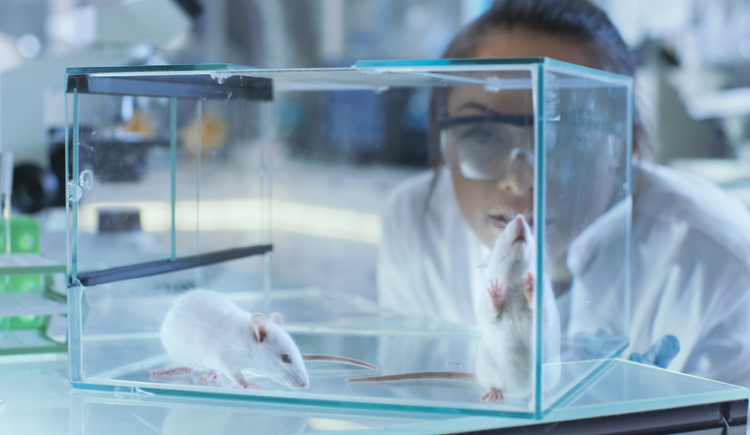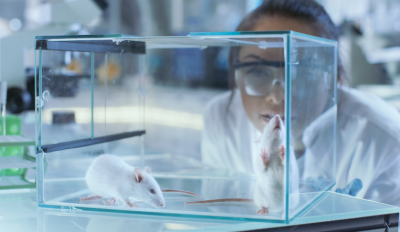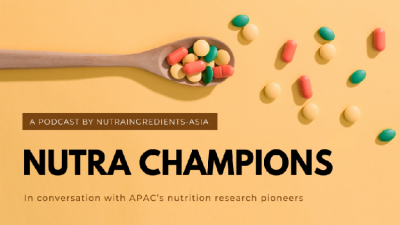Kinder research: NZ academics develop jellies for delivering lipid-based ingredients during animal trials

According to a pilot study and a subsequent study of a larger scale, on average, the mice had eaten up the jellies within 15 minutes.
At the moment, the conventional way of testing lipid-based ingredients in animal models is via gavage, where tube is inserted and slide through the oesophagus to deliver the ingredients.
“When you are testing a drug or a nutraceutical on animals, one of the things that's really important, is to give them the dose that you want to give them [to prove the efficacy of the product],” lead researcher Dr Benjamin Albert, Liggins Institute, University of Auckland told NutraIngredients-Asia.
“There are a few ways. One is to put it in their food, but the problem is that you do not know how much of the food will be eaten, same if you put it in drinking water.
“Also, some substances that you might want to test are quite chemically fragile, and fish oil is one of those, because when its exposed to temperature and to air, it oxidises and changes and goes bad.
“One way to solve that problem is to use a technique call gavage…That works well, because you can give the substance quickly but of course, animals don't like having things like that done to them.
As such, the team decided to explore the method of incorporating fish oil into jellies – which is already the practice for certain drugs.
“We wanted to find a way to give them the same dose of an oil but to do it in a way that was kinder to them, but still let us give the right dose and give it quickly,” he said.
However, oil does not dissolve well in water-based jellies.
The key breakthrough of their innovation is that lipid-based ingredients could be delivered via a jelly gel form.
Based on the studies conducted, each 5ml jelly gel could contain 1ml fish oil.
“We used a special emulsifier which was called non-powdered starch and that enabled us to dissolve the oil into water and then we could turn that into a jelly.
“The thing that we noticed was that when we give them the jellies everyday, they really like them. They would be waiting in the cage for us to give them…I think they think this is something novel, different from their food,” he said of the gel which also comes in the raspberry flavour.
This method could also be used to deliver other lipid-based ingredients such as vitamin D, he said.
Award-winning innovation
The team spent about a year to develop the technology. A large part of it was to incorporate oil into gel form and exploring the right amount of gelatine needed to make the gel hold its shape.
In fact, the team had won the 2020 Aotearoa New Zealand John Schofield 3Rs Implementation Award for this innovation.
The award promotes the reduction and replacement of animals used in research, testing, and teaching, and the refinement of experimental techniques to minimise pain or distress.
Study design
In the 10-day two-part pilot study, 10 rodents took a gel of a different nature, for example flavoured and flavourless each day.
The researchers then observed how quickly the rodents ate the gel and their health status afterwards.
Following the pilot study, the researchers conducted a study of a larger scale – a six-week trial involving 155 rodents.
Across the two pilot studies, over 4,000 doses of gels were given. All gels were eaten up within an average timing of 15 minutes.
Another beauty of the method, Dr Albert said, was that the rodents did not face undue stress – which could be the case when the gavage method is used.
“We believe giving jellies is a much kinder method. Also, it will give you much scientific results when the animals have been put under less stress.”
Feeding jellies also avoid other harms to the rodents and thus, lesser rodents are required during animal testing.
“Occasionally, there could be mishaps when gavage is done, and that could cause the animal to choke or it could cause trauma to the animal.
“By replacing that with gels, we avoid that risk and it also means that we can have less animals in the study, because we don’t need to worry about the risk of some of them being harmed.
Findings of the pilot study are pending publication in a scientific journal. The team is also analysing the results of the larger trial.
The next step, according to Dr Albert, is to share the published findings and protocol of making the gel to the overseas research fraternity.
“Our interest in developing this wasn't to use it commercially, it was to use it for research
“But also, we will like to share this methodology so that other researchers can use it as well, because we think that that would lead to better scientific results, and better treatment of the animals.”



















